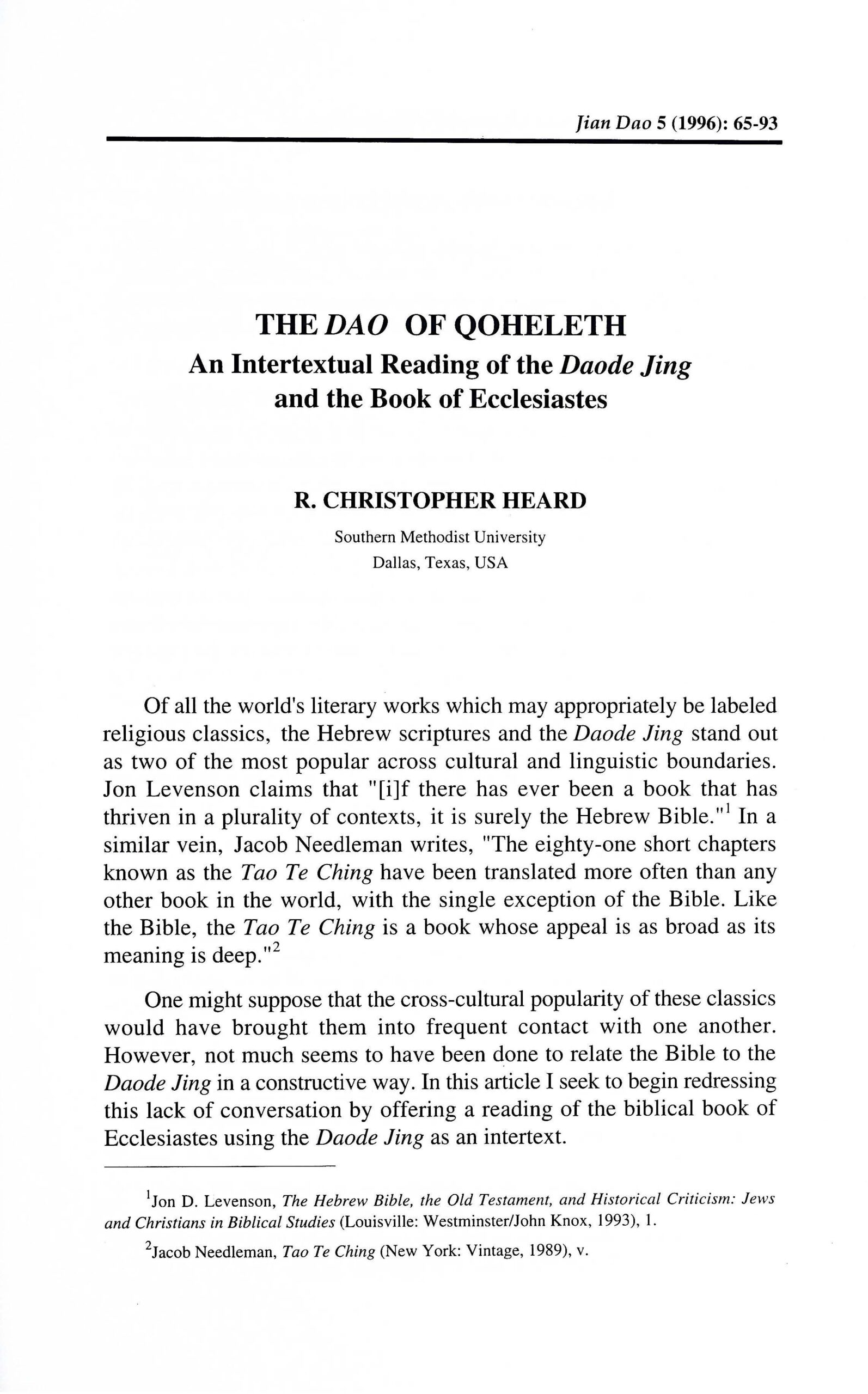THE DAO OF QOHELETH: An Intertextual Reading Of The Daode Jing And The Book Of Ecclesiastes(傳道書中的「道」──《道德經》與傳道書的文本互涉解讀) / Christopher Heard 赫克理斯托弗
撮要
以讀者為主導研究文本互涉性,有利於研究聖經和亞洲的文本。雖然西方批評家明白到中國哲學著作的重要性;但是卻很少以文本互涉的方法研究中國的典籍和聖經的智慧書。本文以文本互涉的方法來解讀傳道書和《道德經》,也就表明這方法的價值。老子「萬物無常」的觀念有助我們明白傳道書模糊的地方,而且令讀者對傳道書所謂的「虛空」有全新的認識。另方面,傳道書的結語亦為《道德經》中所引發的問題提供有趣及中肯的回應。
ABSTRACT
Within the framework of a reader-oriented approach to intertextuality, biblical and Asian texts may profitably be read in terms of one another. Despite Western biblical critics’ recognition of the importance of Chinese philosophical literature, however, Chinese and biblical wisdom texts have not often been read intertextually. An intertextual reading of the book of Ecclesiastes and the Daode Jing illustrates the value of such an approach. Laozi’s perspectives on the inconstancy of all guiding discourses help to make sense of Qoheleth’s confusion and cast his alleged “despair” in an altogether new light. Conversely, Qoheleth’s conclusions provide an interesting and pertinent response to the questions raised by Laozi’s critique of guiding discourses.
原載於《建道學刊》5期(1996年1月),頁65-93。
最新文章
【畢業生分享】重新導航──導引一生的神 / 王雅君
2026 年 1 月 1 日
【畢業生分享】屬靈導引的生命體會——與上主同工的旅程 / 黃芳
2026 年 1 月 1 日
【校本部學生分享】重拾與主同行的節奏——依納爵神操旅程反思 / 鄭家恩
2026 年 1 月 1 日
編輯精選
[電子書]困境與抉擇:「建道研究中心30週年誌慶」跨學科研討會論文集/廖炳堂、倪步曉主編
2025 年 1 月 2 日
從梧州到長洲:建道神學院125年的挑戰與恩典 / 陳智衡
2023 年 10 月 1 日
微小教會的見證/高銘謙
2023 年 6 月 1 日







